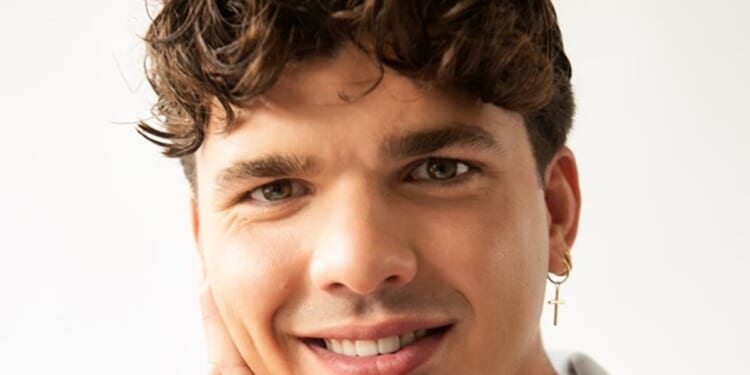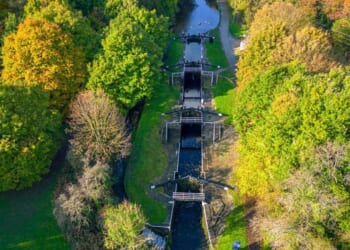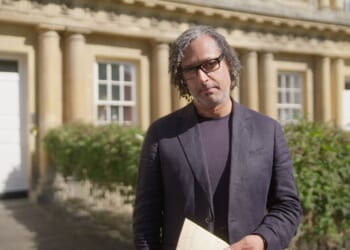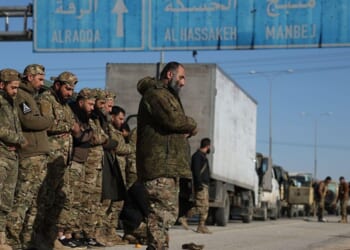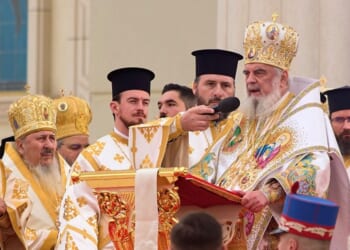HARRY CLARK, winner of the second series of the TV show The Traitors, is the first to admit that writing a memoir at the age of just 24 is unusual. But his victory in the BBC show billed as “the ultimate reality game of trust and treachery” has taken the former army engineer on a remarkable trajectory.
He classes his book, Staying Faithful, as a team effort: “I never thought I’d be the author of a book, because I’m massively dyslexic.” He offers “a massive shout-out to Oli [Oliver Holden-Rea], the ghost writer. We spent hours a day on Zoom, and it was like I’d wrote the book while speaking.”
Brought up in a Roman Catholic family of five children in a Slough council house, Mr Clark still lives in the family home, and his love for his family and faith community shines through. “Me, my brothers and sisters, all of us were brought up in a Christian family, we were all baptised, all did our holy communion, and a few of us made our confirmation.” Our Lady of Peace, the church that the family attended, “was so good because it was an all-loving environment”, he says.
“Sometimes, you can go to a church and find it boring. When you’re a young kid listening to Gospels, listening to talks, if it’s just a straight tone the whole way through, you don’t understand what those words are saying. But my church had children’s groups where they would explain the Bible differently. You learned how to understand it, and how to come up with your own opinions.”
The Clark family were also enthusiastic members of Our Lady of Peace’s band: “I was banging a drum through church, and I played the violin, and my sister played the guitar.”
Retreats run by the Northampton Youth Ministry Office were crucial to his faith formation. “We would go away for two weeks at the start of the summer holiday. It was the coolest thing ever. Just like at my church, you’d start the morning off with prayer, and you learned what faith meant to us, and you would learn about scriptures and the stories. But, straight after that, you might be rock-climbing or abseiling or spending the day at Alton Towers. I had so much fun while learning about my faith, which kept me there.”
AS AN adult, he finds that, in church, “I’m at my most calm. Instead of eight different things going on in my mind, there’s just silence. Church takes you away from your phone and reality for 45 minutes. It puts you in a place of calmness for 45 minutes, like meditation.”
He suggests that various factors are behind young adults’ exploration of Christianity. “You can see it in the data, the rise of young people looking into faith and religion online. That was due to Covid,” he says, “and the year we live in, and the cost-of-living crisis. People are sadder now. Religion is the gap in your heart. All the things you do when you might be sinning — the drinks, the smoking, the lust for people — you’re trying to fill that hole in your heart. My thing for that hole was religion.”
He encourages young people to try to connect with God: “I want to get them to go for it. If you can give yourself the chance of devoting yourself to God for a month, and it doesn’t work, at least you can say you tried it.”
Three encounters that he regards as providential fused his faith and television career. The first was meeting his girlfriend, Anna Maynard, at a Brighton nightclub three years ago. A former children’s TV presenter, a social-media influencer, and sister of the popular singer Conor Maynard, she had ar knowledge of “the industry” (the interface between social media and mainstream broadcasting) which was crucial to guiding his media career.
Footage of him “dancing like an eejit” on her social-media channels attracted the casting director of The Traitors, who offered him an audition for the second series. Having auditioned online from his barracks in July 2023, he was filming at Ardross Castle in August.
To those who question the relatioship betwen the part that he plays in The Traitors — which depends on deceiving the other players — and his adherence to his faith, he responds: “That was easy: it was just a game, just as if I’m playing Monopoly and I cheat, and I steal a couple of 500s when I’m the banker, I don’t then have to pray to God and say ‘Sorry for cheating at Monopoly,’ because it’s just a game. It’s not like I’m trying to be a liar. I have to remind people about the The Traitors: these players don’t get murdered in real life. Some people take it too seriously. It didn’t affect my morals, because I knew it was a game. Everyone was still breathing afterwards. It was fine.”
HIS next brush with reality television was not so sunny. He was dismissed from Celebrity SAS for not completing a task. Still serving out his army contract, and overweight owing to a break from his boxing fitness regime, and unsure of his direction in life, he describes this period as a dark time.
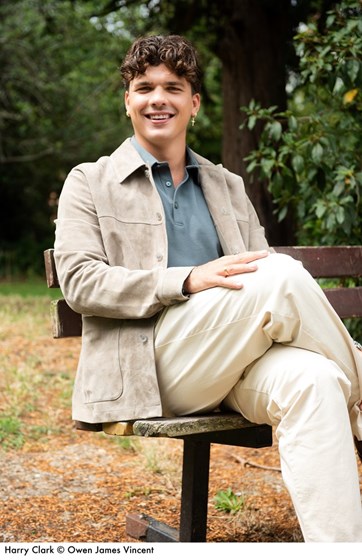 Owen James VincentOwen James Vincent
Owen James VincentOwen James Vincent
“I had so many demons to battle, and felt I’d let everyone down and had embarrassed myself, my family and the army. I started praying again: ‘Give me the strength to make it through this stage in my life.’ Then it was ‘Give me a sign you are still listening.’”
What happened afterwards he interprets as Providence intervening for a second time, with a request to join Pilgrimage, the BBC show in which a group of public figures undertake a physical and spiritual journey together. Mr Clark saw a chance to go public with his Catholicism.
“Before I did Pilgrimage, even my manager said, ‘I didn’t know you were religious,’ and I said, ‘That’s because you didn’t ask. If you’d asked, I’d have told you.’” Close on the heels of the bruising experience of filming Celebrity SAS, he interpreted the positivity of making Pilgrimage as a sign to evangelise.
“Because of how good Pilgrimage was, I feel I’m doing an injustice to my religion if I don’t talk about it. And if that leads to people trying religion for themselves, then that would be my biggest achievement: bring people to the Church.”
He continues: “If my best friend and I both passed away tomorrow, and there was God in front of us, my friend could hit me on the head and say: ‘You could have told me about this. You could have given me more insight about this.’ Then I would feel bad, because I could have spent the time talking about it all — not to try to make him believe, but make him see what I see. And I’d feel such a hypocrite, standing there in front of God, because I hadn’t told my best friend about him.”
His third providential encounter took place during an Uber ride from Slough. Weighing up whether a reality-TV career was worth the loss of privacy and the hassle of being prejudged as lying “Traitor Harry”, he was told by a taxi driver about the value of entertainment to his family.
“The Traitors brought three different generations of his family to the sofa every Friday,” Mr Clark says. “They watched all three episodes and ordered in a takeaway. They could resonate with me, because I was from Slough. And he thanked me for giving him and his family happiness, and he hoped for me to carry on doing that. If he hadn’t had that conversation with me, I wouldn’t be here. The only reason I do it now is to try and resonate with people, and show you can do whatever you set your mind to.”
Describing his life of red-carpet events as an eternal Friday, but aware that “celebrity is not real life”, Mr Clark is coming to terms with being a person of faith in the public eye. “You have a reputation to uphold and an image. It can be scary going out. Some people, because of who you are, will try and pick on you. People always want to see you mess up, and you always have haters in life.”
He is especially aware of his young fans. “Nowadays, there’s a lot more responsibility when I go out; I have to watch myself. And I want youth to see me and think ‘He’s a good guy.’ You don’t want to be seen doing something stupid.”
Mr Clark’s assertion that “You can be just as close to God sitting on the end of your bed as you can in church,” does not wash with his mother. “My mum tells me every week I need to go to church more.” He is looking into weekday masses at Our Lady of Peace, as a way of balancing his schedule. But he is not contemplating any formal position in the Church: “I wouldn’t be a priest, because Anna, my girlfriend, wouldn’t like that. If my media career ended, I’d just go back to work.”

